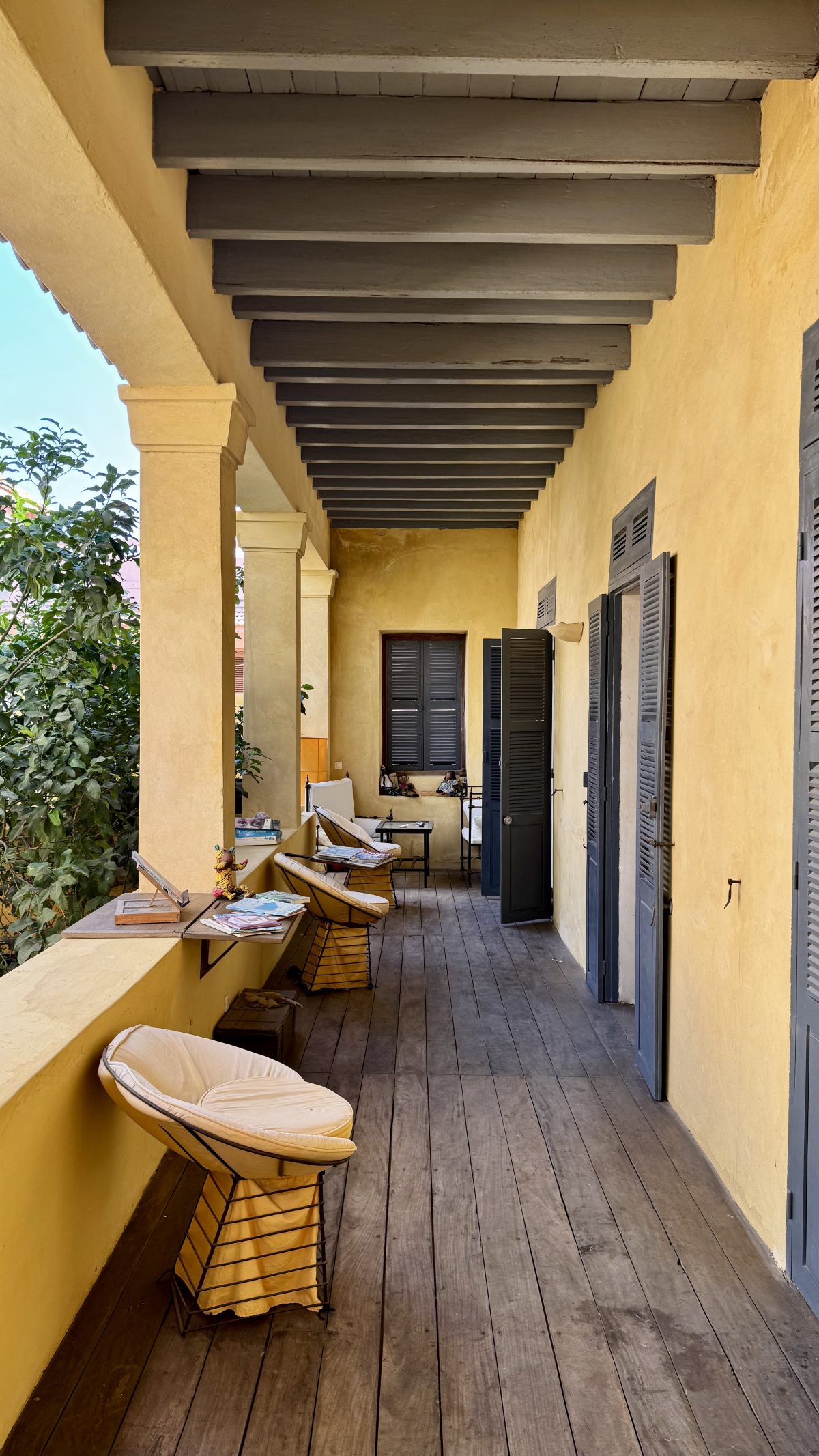Your cart is currently empty!

Au Fil Du Fleuve: A Boutique Experience In St Louis, Senegal
We arrived in Saint‑Louis, Senegal expecting the usual, but Au fil Du Fleuve was an extraordinary experience.
This wasn’t our first visit, I’ve wandered half the city on previous trips, enough to feel I knew its rhythm. But this time we chose to stay at Au Fil Du Fleuve, and that decision changed everything.
Over our welcome platter; bean beignets (acarajé in Senegal, akara for us in Nigeria) and little fish pies that, I have to admit, were the most delicious I’ve ever had—Marie‑Caroline began to tell us her story.

A Little Bit of History
The building itself was once a 19th‑century warehouse for Arabic gum before it was lovingly restored. You can still feel its past in the bones of the walls and the echo of its high ceilings, but it’s Marie‑Caroline Camara’s presence that gives the space its soul. She’s the owner, yes, but more than that, she’s a quiet force behind this beautiful rebirth.
She told us how she was born to a French mother and a Senegalese father. After spending a good part of her life abroad, she walked away from a corporate life in France because she wanted to rebuild ties with her father’s homeland and make sure her children would always stay connected to their African heritage.

You see that passion in every tile, every thread, and every scent at Au Fil Du Fleuve. She didn’t just restore a building—she revived a memory. And in doing so, she created something intimate and alive.

Inside Au Fil Du Fleuve
Now that you know a bit about its history, let’s step inside. The guesthouse is tucked away in the island’s historical quarter and has just five rooms and suites. Everything from the light fixtures, chairs, mirror frames, even the linens has been thoughtfully curated or custom‑designed by Marie‑Caroline and brought to life by local artisans. The result is a space that feels deeply authentic and celebrates local artisans.




Saint‑Louis is a UNESCO World Heritage Site along the Senegal River, and so Marie‑Caroline renovated the property in line with preservation rules to maintain the island’s historical integrity.
From the moment you step through those tall wooden doors, it feels like you’re crossing into another era. Yet nothing about it feels dated. The guest rooms are clean, serene and sunlit, with airy fabrics and rich wood that serve a purpose while still honoring the history of the house.



Au Fil Du Fleuve’s Dedication to Culture
Since opening in 2013, Au Fil Du Fleuve has been more than a guesthouse. It’s a place that showcases Senegalese artisanship, African literature, contemporary art, and traditional cuisine—a way to amplify local creatives and support the community in a sustainable way.
They host regular exhibitions of contemporary African art, and there’s a library full of African literature in a shared space for guests to enjoy. But their true specialty is the food.
Breakfast each morning is a spread of African delicacies, and dinners are traditional Senegalese meals cooked with local ingredients and recipes handed down through generations. Honestly, they serve the best breakfast in Saint‑Louis.



Before dinnertime, she sets out a little table with homemade drinks and snacks for the day. This gives you an opportunity to connect with her as a host, and with other guests.
Marie‑Caroline also hosts cooking classes, taking guests with her to the market to pick out ingredients before teaching them how to prepare classics like thieboudienne — Saint‑Louis’s UNESCO‑recognized rice and fish dish, and the grand ancestor of jollof rice.

A few years ago, Au Fil Du Fleuve was even featured on Anthony Bourdain’s Parts Unknown, in an episode dedicated to Senegal. That tells you just how integral food is to its story.
The City Beyond the Walls
Saint‑Louis itself is a treasure trove. Musicians, dancers, antique dealers, and painters make up the heart of the island.
The annual Saint‑Louis Jazz Festival—Africa’s largest—is still on our bucket list, and we hope to tick that off on our next trip. If you decide to visit, we’ve put together a guide to help you navigate Saint‑Louis like a local. You can read it here.
Marie‑Caroline spoke passionately about the role of secondary towns like Saint‑Louis in giving visitors a deeper, more grounded understanding of Senegal. In recent years, she said, Au Fil Du Fleuve has welcomed a growing number of Black travelers—many drawn not just to the guesthouse, but to the island itself. It’s a sign that more people in the Black diaspora are looking for connection, context, and cultural depth through travel. And it’s no surprise, given Saint‑Louis’s unique place in Senegal’s colonial history.







A Home Away from Home
What stands out the most about Au Fil Du Fleuve isn’t even the aesthetics or the food—it’s the atmosphere of intentional care. Everything felt personal. Not performative. Not transactional. Just human.




And that’s the magic of places like this. They remind us that travel isn’t always about escape. Sometimes, it’s about returning to and reconnecting with cultural roots. And thanks to Marie‑Caroline, Saint‑Louis now has a space that allows people to do just that—with grace.





If you ever find yourself in Saint‑Louis, don’t just pass through. Stay, and let Au Fil Du Fleuve show you what it means to be hosted, not just housed. You can read more about this magical guesthouse or book a stay by visiting their website.
Leave a Reply